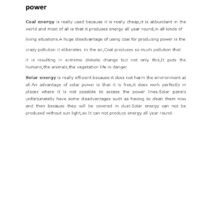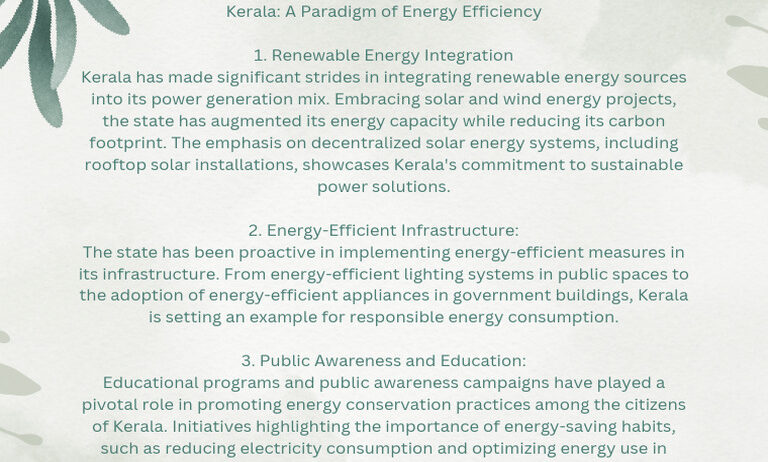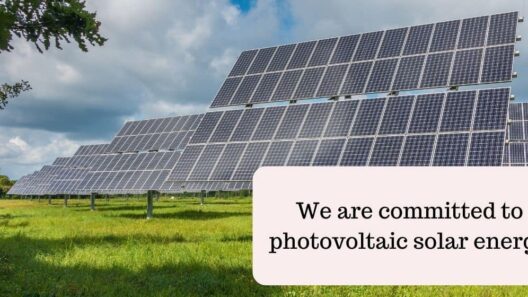Energy conservation is akin to nurturing a fragile garden; it requires thoughtful attention, balanced resources, and the understanding that every action, no matter how small, contributes to the overall health of the ecosystem. As we navigate an era marked by unprecedented energy consumption, comprehending the nuances of energy conservation becomes paramount. This guide aims to unravel the fabric of energy conservation, painting it not merely as a practice, but as a philosophy deeply embedded in sustainable living.
Understanding Energy Conservation
Energy conservation involves the deliberate reduction of energy consumption through various strategies and practices. While some might equate energy conservation solely with reducing usage, it transcends this simplistic definition. Energy conservation is not just about less; it encompasses intelligent usage—optimizing energy services to yield the greatest benefit without unnecessary waste. Imagine replacing a flickering candle with a bright LED light; the latter illuminates the room more efficiently, consuming less energy while providing enhanced visibility.
This concept operates under the premise that the Earth’s resources are finite. Just as a gardener must use water judiciously, ensuring that each drop nourishes the plants without excess runoff, we must utilize energy resources wisely. This holistic approach is essential for mitigating the adverse effects of energy overconsumption, which can lead to ecological degradation and climate instability.
The Rationale Behind Energy Conservation
The rationale for energy conservation encompasses several critical dimensions—economic, environmental, and social. Economically, reduced energy consumption can lead to significant financial savings. By implementing energy-efficient technologies, households and businesses can lower their utility bills. Additionally, reducing the demand for energy can slow the escalation of energy prices—a windfall for consumers navigating fluctuating market conditions.
Environmentally, energy conservation is a crucial strategy in combatting climate change. Most of our energy sources, particularly fossil fuels, emit greenhouse gases upon combustion. These emissions are directly correlated with global warming, leading to detrimental effects on ecosystems. By conserving energy, we diminish the need for such harmful sources, granting the Earth a chance to heal and restore balance.
Socially, energy conservation fosters a culture of awareness and responsibility. When individuals and communities engage in energy-saving practices, they cultivate a shared sense of commitment toward sustainability. The ripple effect of this community-driven ethos can galvanize larger societal shifts toward renewable energy sources, ultimately paving the way for a sustainable future.
Strategies for Effective Energy Conservation
To effectively conserve energy, one can employ a myriad of strategies that range from simple behavioral changes to advanced technologies. Below are notable approaches:
- Behavioral Changes: Small actions, such as turning off lights when leaving a room or unplugging electronic devices when not in use, can collectively lead to substantial energy savings. Encourage a habit of mindfulness regarding energy use—much like a gardener attends to the soil, cultivate an awareness of energy consumption.
- Energy-Efficient Appliances: Invest in appliances rated for energy efficiency. These devices are designed to operate using minimal power while maintaining performance quality. For instance, Energy Star-rated appliances can save significant amounts of energy compared to their less efficient counterparts.
- Smart Technology: Embrace smart home technology, such as programmable thermostats and smart meters. These innovations provide real-time feedback on energy consumption, enabling users to modify their habits and reduce waste effortlessly.
- Insulation and Weatherization: Properly insulating a home can greatly reduce heating and cooling costs. Just as a well-insulated greenhouse promotes growth while minimizing resource use, a well-insulated home maintains comfort without excessive energy input.
- Renewable Energy Sources: Whenever possible, harnessing renewable energy sources, such as solar or wind power, can drastically reduce reliance on fossil fuels. Much like employing natural sunlight to cultivate growth in a garden, using renewables signifies a shift towards sustainability.
The Broader Implications of Energy Conservation
The implications of energy conservation extend far beyond individual households. On a macro scale, energy conservation contributes to national energy security. By reducing dependence on imported fuels, countries can enhance their economic resilience and energy autonomy. Additionally, energy conservation fosters technological innovation. As demand for energy-efficient solutions escalates, industries are propelled to advance their research and development efforts, ultimately benefiting consumers with cutting-edge technologies.
Furthermore, the practice of energy conservation is interwoven with social equity. Low-income communities often bear the brunt of energy burdens—higher utility costs can disproportionately impact their quality of life. By promoting energy-efficient practices and technologies, there exists a unique opportunity to alleviate financial strain and improve living conditions for these vulnerable populations.
Conclusion: Cultivating a Culture of Conservation
Energy conservation is a critical component of sustainable living that calls for conscious effort and collective action. As individuals, communities, and nations, we have the ability to embody this ethos, much like a gardener cherishes their plot of land. The practices we adopt today not only shape our immediate surroundings but also forge a path towards a healthier planet for future generations.
In conclusion, embracing energy conservation is not merely an option but an imperative. It requires cultivation of awareness, legislative support, and a commitment to innovative practices. As we engage in the delicate dance of energy use, let us heed the call to conserve and, in doing so, foster a sustainable environment that benefits all forms of life.








